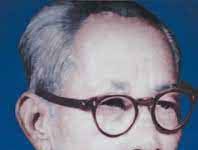King Hussein bin Talal | Brief Biography
King Hussein bin Talal
King Hussein bin Talal of Jordan was born on November 14, 1935, in Amman, Jordan. He was the king of Jordan from 1952 until his death in 1999. During his 47-year reign, King Hussein played a pivotal role in shaping Jordan’s domestic and foreign policies.
King Hussein‘s rule began at a young age, as he took the throne at the age of 16 after the sudden death of his father King Talal. Despite his youth, King Hussein quickly established himself as a strong and capable leader, successfully navigating the political turmoil of the time.
Throughout his reign, King Hussein worked to modernize and industrialize Jordan, implementing reforms aimed at boosting the country’s economy and improving the standard of living for its citizens. He also made efforts to promote peace and stability in the region, including negotiating a peace agreement with Israel in 1994 and playing a key role in regional peace talks throughout the 1990s.
King Hussein bin Talal‘s commitment to peace and stability was not limited to the political sphere, as he also worked tirelessly to promote religious tolerance and understanding both within Jordan and internationally. He was widely respected for his efforts to foster interfaith dialogue and to promote peace and stability in the region.
Despite facing numerous challenges and setbacks during his reign, King Hussein remained steadfast in his commitment to the Jordanian people and to the principles of peace and justice. He passed away on February 7, 1999, leaving behind a legacy of stability, prosperity, and peace that continues to inspire people around the world.
Sources:
“King Hussein of Jordan: A Political Life” by Laurence Louër
“Hussein of Jordan: A Political Biography” by Philip Robins
“King Hussein: A Life on the Edge” by Milton Viorst
“Jordan: A Study in Political Development” by Asher Susser
The official website of the Hashemite Kingdom of Jordan (www.kinghussein.gov.jo). ***
N.B. The article originally belongs to the book ‘Brief Biographies of Eminent Monarchs‘ by Menonim Menonimus.
Books of Biography by M. Menonimus:
- The World Writers-Brief Biographies
- Introduction to World Writers
- Introduction to World Personalities
- Love of Reputed Persons
- Brief Biographies of Ancient Thinkers and Writers..
Additional Searches:
- Famous Kings and Queens
- Living Biographies of Famous Rulers
- Biography of Elizabeth II
- Most Famous Kings in History











